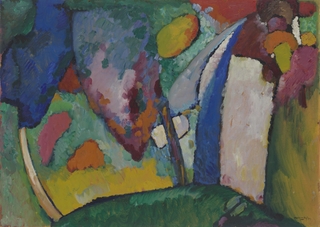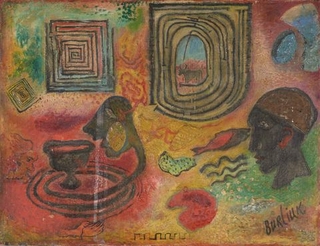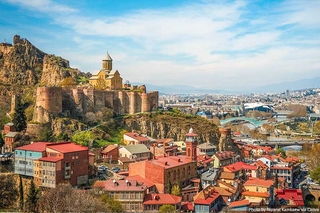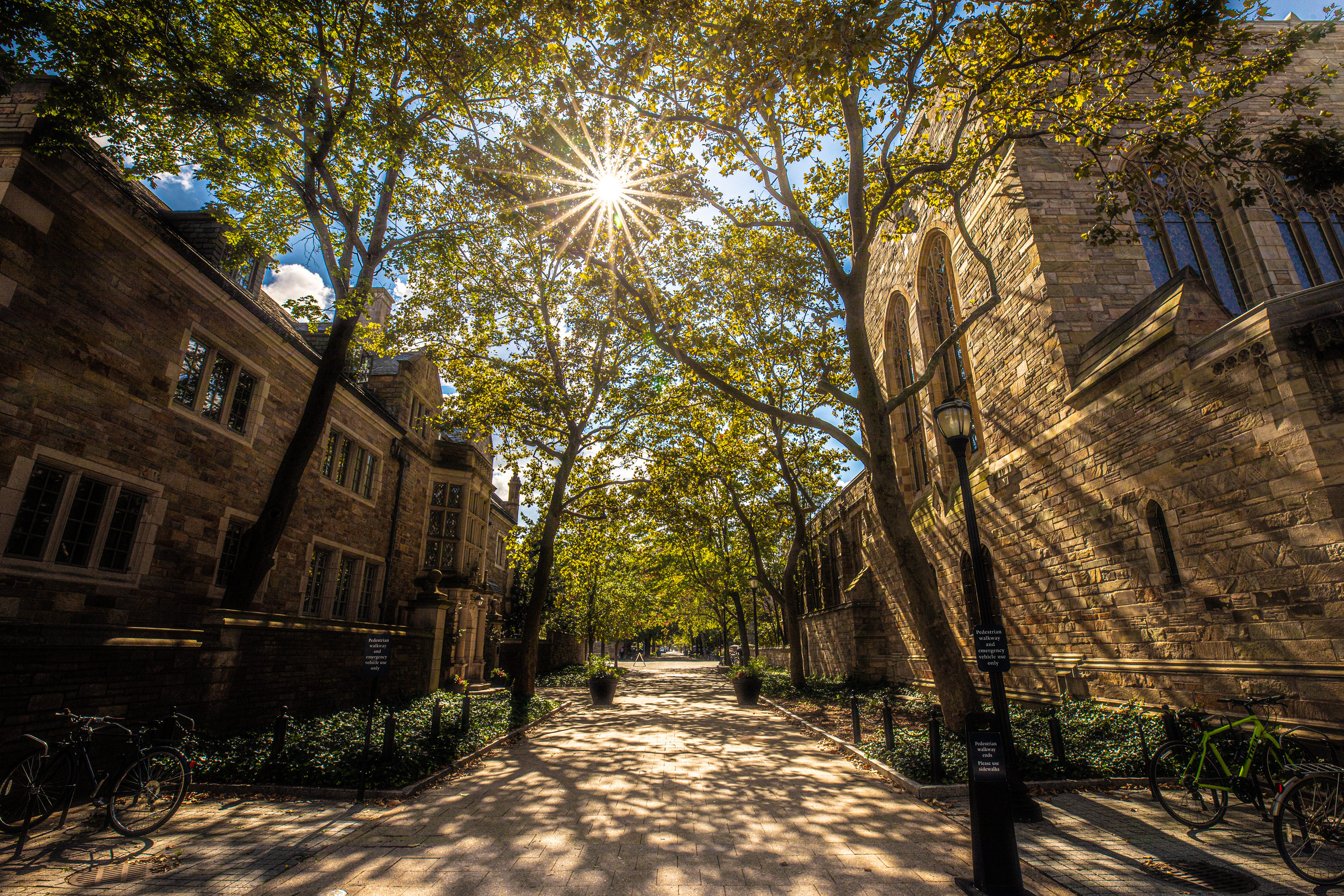The Russian, East European, and Eurasian Studies major offers an interdisciplinary approach to the study of a broad region: Russia, Ukraine, Belarus, the Caucasus, and central Asia; Poland, Hungary, the Czech and Slovak Republics, and other areas in east central Europe; and the Balkans. Students majoring in RSEE may concentrate exclusively on Russian Studies, or on East European or Eurasian Studies. The major is appropriate for students considering careers in international public policy, diplomacy, or business, and is also suited to students wishing to continue academic work.
Russian Studies Concentration
Twelve term courses, including the senior requirement, are required for the Russian Studies concentration. Students must take two courses in Russian, East European, or Eurasian history; one RSEE-area focused course in the social sciences, such as those found in anthropology, economics, sociology, political science, global affairs, and other disciplines of social science; one course in Russian, East European, or Eurasian literature or culture, selected in consultation with the director of undergraduate studies (DUS); and the Senior Essay.

Russian Studies concentration Twelve term courses, including the senior requirement, are required for the Russian Studies concentration. Students must take two courses in Russian, East European, or Eurasian history; one RSEE-area focused course in the social sciences, such as those found in anthropology, economics, sociology, political science, global affairs, and other disciplines of social science; one course in Russian, East European, or Eurasian literature or culture, selected in consultation with the director of undergraduate studies (DUS); and the Senior Essay (RSEE 4900 or RSEE 4910). To fulfill the language requirement students must demonstrate a proficiency in Russian by completing RUSS 1500 and 1510 or by passing an equivalency exam. A maximum of five language courses may be counted toward the major. If language proficiency is met without coursework, the course requirements must be fulfilled through additional term courses to bring the overall total to twelve courses. Electives are selected in consultation with the DUS and may include RUSS 1600 and 1610, a content course taught in Russian at the 1700–1900 level, or courses in other East European or Eurasian languages at the second-year level or above.
All majors write a senior essay, an independent project carried out under the guidance of a faculty member. The senior essay takes the form of a substantial article, no longer than 13,000 words, excluding footnotes and bibliography. By the end of the junior year, students should declare their general topic and arrange for a faculty adviser, in consultation with the DUS. Students planning to conduct summer research for the senior essay, especially if abroad, should contact the DUS early in the spring semester of the junior year and apply for fellowships.
Students may opt to enroll in both RSEE 4900 and RSEE 4910, but only one of these courses counts toward the major requirements.
Optionally, students may opt to prepare for the senior essay in the term before they enroll in either RSEE 4900 or 4910. In this instance, students submit a proposal to their adviser (up to two pages double spaced) by the first day of the term before they enroll in RSEE 4900 or RSEE 4910. They also submit a draft of at least ten pages, or a detailed outline of the entire essay by the end of the midterm break. Students finalize their essay during the term in which they are enrolled in RSEE 4900 or RSEE 4910. The final essay is due ten days before the last day of classes, typically around April 15 for those students graduating in the spring or November 25 for those graduating in December. A member of the faculty other than the adviser grades the essay. Senior essays will be considered for prizes.
Students pursuing two majors need to fulfill the senior requirement of both majors. If the second major allows, students may enroll in both RSEE 4900 and RSEE 4910 and write a longer essay than for the single-term essay. In this case, students count the second term of the RSEE senior essay as their 13th (Russian Studies concentration) or 12th (East European or Eurasian concentration) course in Russian, East European, and Eurasian Studies.
Learn about the 4 year roadmap of coursework.
Incoming first-year students are automatically assigned an adviser (called a college adviser) for their first term; in spring term, students may continue to work with the same college adviser or may choose a faculty member in Yale College to be a sophomore-year adviser.
Find extensive information at the Yale College advising site
East European Studies or Eurasian Concentration
Eleven term courses, including the senior requirement, are required for the East European and the Eurasian concentrations. The requirements are the same as for the Russian Studies concentration, excluding the language requirements. To fulfill the language requirement students must demonstrate a proficiency in either an East European or Eurasian language (such as Czech, Polish, Romanian, Bosnian-Serbian-Croatian, Hungarian, Ukrainian, or those languages taught through the Shared Course Initiative).

Two semesters of the first-year sequence in an East European or an Eurasian language or a placement exam.
East European Studies or Eurasian concentration Eleven term courses, including the senior requirement, are required for the East European and the Eurasian concentrations. The requirements are the same as for the Russian Studies concentration, excluding the language requirements. To fulfill the language requirement students must demonstrate a proficiency in either an East European or Eurasian language (such as Czech, Polish, Romanian, Bosnian-Serbian-Croatian, Hungarian, Ukrainian, or those languages taught through the Shared Course Initiative) by completing the third-year level (4 term courses) of the chosen language or by passing an equivalency exam. The remaining two courses are chosen in consultation with the DUS. If language proficiency is met without coursework, the course requirements must be fulfilled through additional term courses to bring the overall total to eleven courses.
All majors write a senior essay, an independent project carried out under the guidance of a faculty member. The senior essay takes the form of a substantial article, no longer than 13,000 words, excluding footnotes and bibliography. By the end of the junior year, students should declare their general topic and arrange for a faculty adviser, in consultation with the DUS. Students planning to conduct summer research for the senior essay, especially if abroad, should contact the DUS early in the spring semester of the junior year and apply for fellowships.
Students may opt to enroll in both RSEE 4900 and RSEE 4910, but only one of these courses counts toward the major requirements.
Optionally, students may opt to prepare for the senior essay in the term before they enroll in either RSEE 4900 or 4910. In this instance, students submit a proposal to their adviser (up to two pages double spaced) by the first day of the term before they enroll in RSEE 4900 or RSEE 4910. They also submit a draft of at least ten pages, or a detailed outline of the entire essay by the end of the midterm break. Students finalize their essay during the term in which they are enrolled in RSEE 4900 or RSEE 4910. The final essay is due ten days before the last day of classes, typically around April 15 for those students graduating in the spring or November 25 for those graduating in December. A member of the faculty other than the adviser grades the essay. Senior essays will be considered for prizes.
Students pursuing two majors need to fulfill the senior requirement of both majors. If the second major allows, students may enroll in both RSEE 4900 and RSEE 4910 and write a longer essay than for the single-term essay. In this case, students count the second term of the RSEE senior essay as their 13th (Russian Studies concentration) or 12th (East European or Eurasian concentration) course in Russian, East European, and Eurasian Studies.
Incoming first-year students are automatically assigned an adviser (called a college adviser) for their first term; in spring term, students may continue to work with the same college adviser or may choose a faculty member in Yale College to be a sophomore-year adviser.
Find extensive information at the Yale College advising site
Certificate of Advanced Language Study in Russian
The department also facilitates a Certificate of Advanced Language Study in Russian.
Languages We Teach
We also teach Polish, Ukranian, Bosnian/Croatian/Serbian, Czech, Finnish, and Hungarian through the credit-granting Shared Course Initiative
Courses for both Tracks
Strange Russian Writers RUSS 024a / RSEE 024a (Edyta Bojanowska)
Russian and Chinese Science Fiction RUSS 025 / EALL 025 (Jinyi Chu)
Culture and Everyday Life in Central Asia RUSS 026 / RSEE 009 (Claire Roosien)
Elementary Polish I PLSH 110 (Krystyna Illakowicz)
Elementary Polish II PLSH 120 (Krystyna Illakowicz)
Intermediate Polish I PLSH 130 (Krystyna Illakowicz)
Intermediate Polish I PLSH 140 (Krystyna Illakowicz)
First-Year Russian I RUSS 110 (Julia Titus)
First-Year Russian II RUSS 120 (Julia Titus)
Russian for Heritage Learners I RUSS 122 (Julia Titus)
Russian for Heritage Learners II RUSS 142 (Julia Titus)
Intensive Elementary Russian RUSS 125 (Constantine Muravnik)
Intensive Intermediate Russian RUSS 145 (Constantine Muravnik)
Second-Year Russian I RUSS 130 (Olha Tytarenko)
Second-Year Russian II RUSS 140 (Olha Tytarenko)
Third-Year Russian I RUSS 150 (Constantine Muravnik)
Third-Year Russian II RUSS 151 (Constantine Muravnik)
Fourth-Year Russian I RUSS 160 (Anastasia Selemeneva)
Fourth-Year Russian II RUSS 161 (Anastasia Selemeneva)
Elementary Ukrainian I UKRN 110 (Olha Tytarenko)
Elementary Ukrainian II UKRN 120 (Olha Tytarenko)
War Games RUSS 222 / FILM 369 / RSEE 244 / HUMS 186 (Marijeta Bozovic and Spencer Small)
Russian Folklore: Bridging Tales and Politics RUSS 225 (Olha Tytarenko)
Multicultural Literature of Russia and the Soviet Union RUSS 242 / RSEE 242 / ER&M 303 (Claire Roosien)
Love and Death in the Russian Short Story RUSS 246 / RSEE 246 (Edyta Bojanowska)
Polish Communism and Postcommunism in Film PLSH 246 / FILM 241 (Krystyna Illakowicz)
Polish Theatre and Its Traditions PLSH 248 / THST 370 (Krystyna Illakowicz)
Nineteenth-Century Russian Literature RUSS 250 (Molly Brunson)
Modernism and Revolution RUSS 252 (Jinyi Chu)
Art and the Arctic RUSS 309 / HSAR 354 / RSEE 309 (Molly Brunson)
Socialist ’80s: Aesthetics of Reform in China and the Soviet Union RUSS 316 / EALL 288 / EAST 316 / LITR 303 / RSEE 316 / RUSS 605 / EALL 588 / EAST 616 / RSEE 605 / CPLT 612 (Jinyi Chu)
Close Analysis of Film FILM 320 / HSAR 490 (John MacKay)
The Master and Margarita: Money, Sex, and Power in Stalin’s Russia RUSS 324 / RSEE 322 (Nari Shelekpayev)
Ten Eurasian Cities RUSS 325 / RSEE 325 / URBN 303 / HIST 293J (Nari Shelekpayev)
Introduction to Modern Central Asia RUSS 329 / MMES 300 / RSEE 329 / HIST 398J (Claire Roosien)
The Living Dead in Literature RUSS 333 / LITR 227 (Molly Brunson)
Marxist Cultural Theory LITR 336 (John MacKay)
The International Movie Musical FILM 338 (John MacKay)
Ecology and Russian Culture RUSS 355 / EVST 294 / HUMS 294 / RSEE 355 (Molly Brunson)
Russia Between Empire and Nation RUSS 350 / RUSS 670 / HUMS 309 / RSEE 351 / E&RS 618 / HIST 241J / ER&M 417 (Edyta Bojanowska and Claire Roosien)
Putin’s Russia and Protest Culture RUSS 380 / RSEE 380 / LITR 301 / FILM 360 (Marijeta Bozovic)
Global Film and Media Concepts SLAV 385 / FILM 485 / FILM 885 (John MacKay)
Media & Revolution since 1917 RUSS 390 / FILM 383 (John MacKay)
The Russian Short Story RUSS 391 / LITR 312 / RUSS 753 (John MacKay)
Advanced Polish: Adv Polish: Poles in American History PLSH 150 (Krystyna Illakowicz)
The Language of the Russian Revolution RUSS 155 (Constantine Muravnik)
Russian History through Literature and Film RUSS 172 (Anastasia Selemeneva)
Ecology and Nature in Russian Culture RUSS 173 (Anastasia Selemeneva)
Fantastika: Russian Fantasy and Science Fiction RUSS 177 (Anastasia Selemeneva)
The Russian Works of Vladimir Nabokov RUSS 174 (Constantine Muravnik)
Reading the Russian Revolution RUSS 175 / HUMS 175 (Constantine Muravnik)
The Russian Short Story RUSS 178 (Julia Titus)
The Grotesque in Victor Pelevin RUSS 179 (Constantine Muravnik)
Introduction to Film Studies FILM 150 (John MacKay)
Russian and Soviet Art, 1757 to the Present RUSS 220 / HSAR 221 (Molly Brunson)
Russian Culture: Modern Age RUSS 241 / HIST 237 / RSEE 390 (John MacKay and Claire Roosien)
Introduction to Film Theory FILM 245 (John MacKay)
Tolstoy and Dostoevsky RUSS 254 / RSEE 254 / LITR 245 (Molly Brunson)
Nabokov and World Literature RUSS 260 / LITR 202 (Marijeta Bozovic)
Tolstoy’s War and Peace RUSS 312 / HUMS 255 / LITR 253 / RSEE 312 / HIST 260 (Edyta Bojanowska)
The Danube River in Literature & Film RUSS 327 / RUSS 776 / FILM 409 / LITR 306 / RSEE 327 / CPLT 841 (Marijeta Bozovic)
Internet Cultures RSEE 350 / FILM 394 / LITR 409 / WGSS 394 / ENGL 198 (Marijeta Bozovic)
Study Abroad with Faculty
An intensive summer program abroad featuring language study at the first-year, second-year, third-year, or advanced level of Russian.
In addition to rigorous language training, this course features a rich cultural program that contextualizes Georgia’s historical and contemporary relationship with Russia past and present. Students experience the ancient and modern history of Georgia, its vibrant society, and stunning natural beauty.

Undergraduate Contacts
-
Constantine Muravnik
Sr Lector II of Slavic Languages & Literatures -
Dan Rehberg
Registrar -
Claire Roosien
Assistant Professor of Slavic Languages and Literatures
